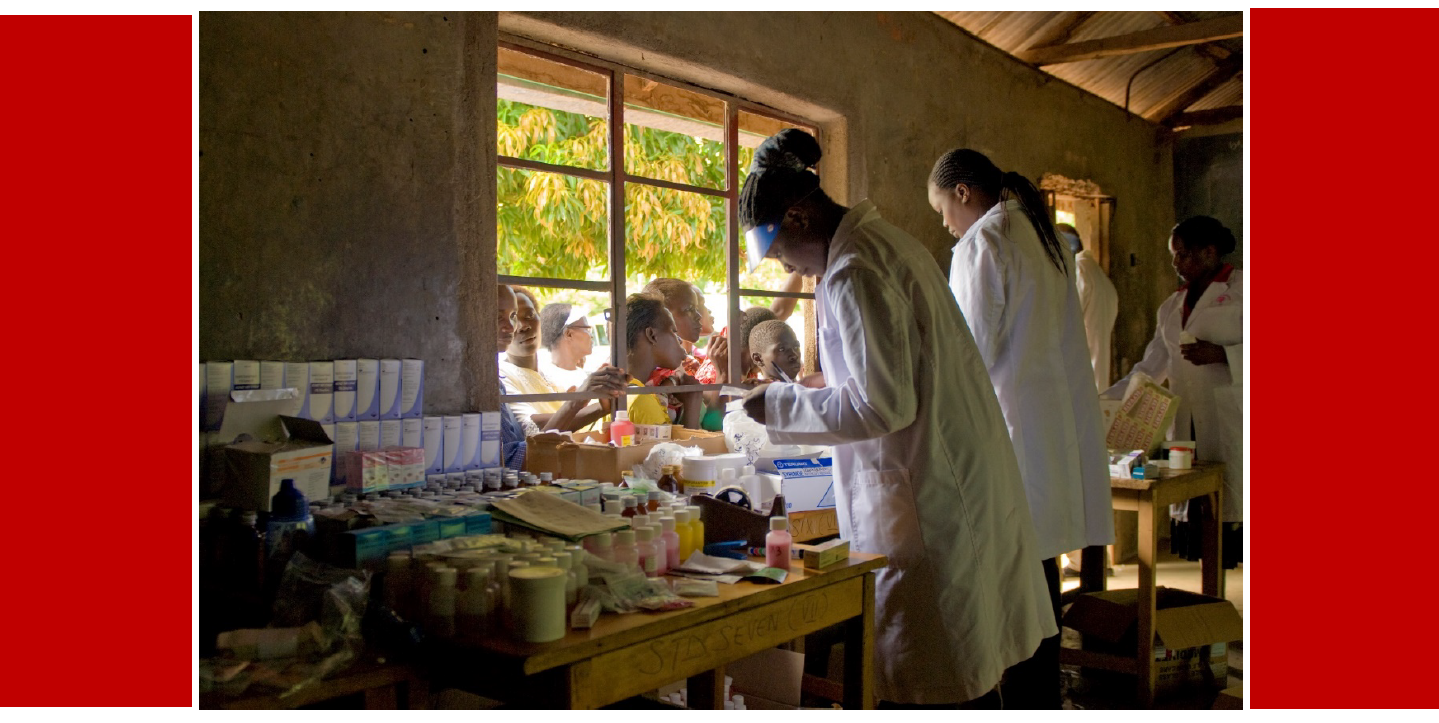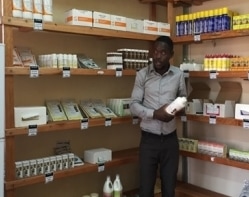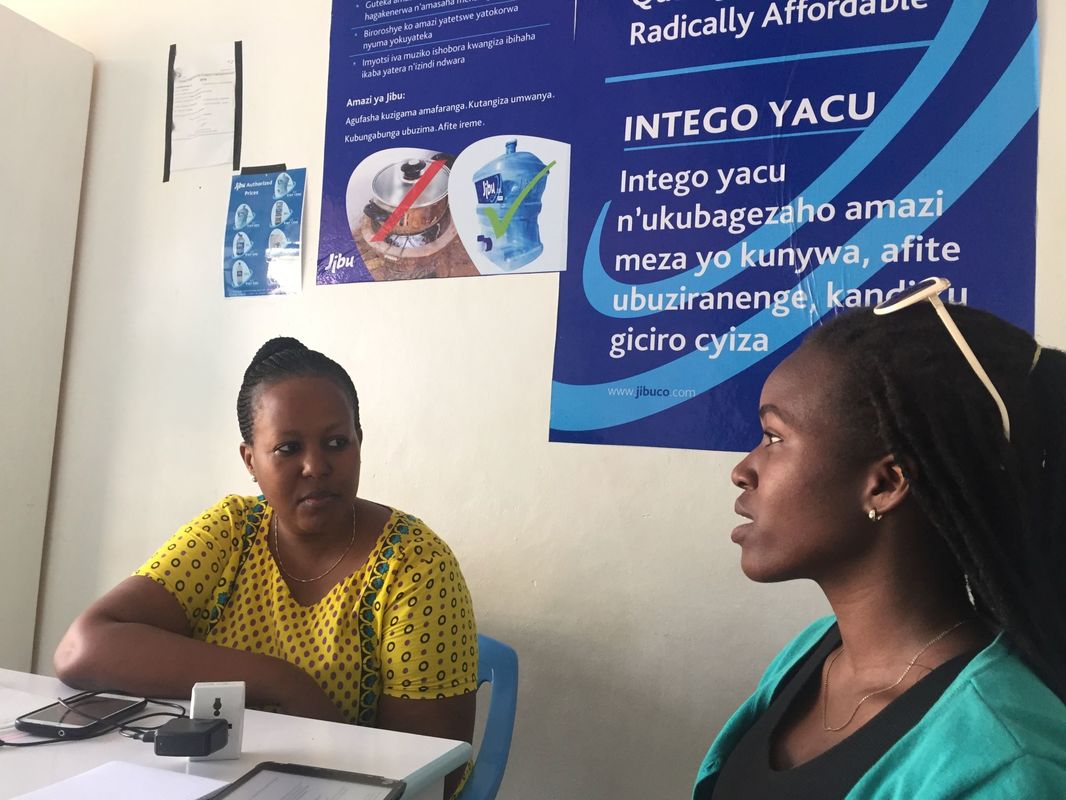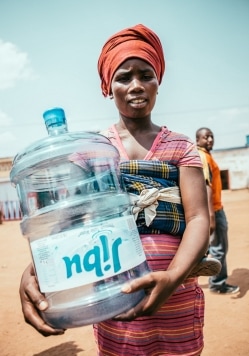|
Dr. Rozenn PERRIGOT Associate Professor Director of the Center in Franchising, Retail & Service Chains Graduate School of Management (IGR-IAE Rennes) University of Rennes 1 EXECUTIVE SUMMARY
In the context of the growth of franchising in the social sector, and more specifically in the health care sector in Africa, it is important to understand how franchising can contribute to the development of the sector, from the quality of treatment and services offered to the performance of the companies. This CFW network case study’s objective is to understand and assess:
The methodology of this exploratory study is qualitative and based on:
This multi-level approach involving people from headquarters, franchisees, an employee of a clinic, customers and a prescriber has allowed me to gain a global overview of CFW activities and operations, the CFW franchise business model and CFW challenges and future prospects. The following findings and recommendations have emerged from this study: Valorizing CFW organizational know-how: In addition to the know-how that has been implemented and codified by CFW before being transferred to the franchisees, CFW has important organizational know-how at the headquarters’ level. Specifically, I refer to the codification of the business know-how, franchisee training, the audit of the clinics and the supply of medicines. Another example of relevant organizational know-how of CFW is the CFW Outlets Compliance Code that is “a code for the Field Officers on how to handle non-compliant CFW franchisees. It defines contraventions of specific CFW franchise standards so as to clarify the relevant steps an officer should take.” It would be appropriate to proceed to a detailed audit of all this organizational know-how and valorize it:
Considering the evolution of the CFW concept: In terms of evolution of the CFW concept, it appeared during the interviews that there was an interest in expanding the services offered by the CFW clinics, as well as opening hours of the clinics. First, according to CFW customers, services and facilities provided by the CFW clinics could be expanded. Interviewees mentioned specifically vans, deliveries, laboratories as well as adding wards for in-patient care. On the one hand, this would be a way to better meet customers’ demands and, on the other hand, a way for the franchisees to develop their activities and then make more money. Second, two customers who would like 24H/24 service also suggested expanding the opening hours of the clinics. The associated issue would be the cost associated with expanded opening hours. Better assessing customer needs and expectations: In addition to this exploratory qualitative study, a questionnaire-based survey given to customers would be very useful in order to assess customers’ needs, expectations and also satisfaction. Living Case Study Webinar -- Measuring Social Sector Franchise Impact: How Lean Data measurement can help improve franchise impact and success Wednesday, June 7, 2017 10:00 a.m. - 11:00 a.m. (EST) Online By definition Social Sector Franchises promise to deliver needed goods and services at scale with measurable social impact. While a large number of tools and frameworks are available for measuring impact there are limitations to how well they will keep up with franchise growth without becoming prohibitively cumbersome or costly. In this webinar we will review a few of the more common approaches to impact measurement and their limitations and will learn about an exciting new tool for impact measurement developed by Acumen. In its application across the globe Lean Data is making it possible for social enterprises get accurate and timely data at relatively low cost and ease of implementation. Guest moderator Fiona Wilson, Executive Director of the Center for Social Innovation and Enterprise will be joined by Greg Starbird a social franchise expert to discuss the importance and challenges of impact data measurement in social sector franchising. Fiona and Greg will be joined by Ashley Speyer Acumen’s Lean Data Senior Associate who will describe this exciting methodology and give examples from its use with several of Acumen’s social businesses. A question and answer segment will give broadcast viewers a chance to interact with our webinar guests. REGISTER NOW Living Case Study Webinar -- Creative financial models to drive social franchise success There are a range of investment vehicles currently used to support social sector franchises in health, water, sanitation, education, clean energy, and agriculture. Each is attracted to the tremendous potential that the franchise model can deliver for social and financial returns. That potential can only be realized when social franchises are developed in a methodical way that requires different types of resources at various stages of growth. Better coordination among financing institutions to create blended financing options that drive healthy growth of social franchises will benefit investors, investees, and the people that social sector franchises serve. In our second webinar guest moderator Julie McBride of MSA Worldwide will engage guests in a discussion around current financial products and investment practices and opportunities for creating more strategic ways to support social franchising. Guests include Michael Swack from the Center for Impact Finance at UNH a leader in the impact investment field, John Simon from TOTAL Impact Capital, a boutique finance firm specializing in sourcing and developing private investment opportunities that are socially and financially attractive and Randy Welsch, Co-founder of Jibu, a for-profit business with the integrated goals of making money and making charitable impact. WATCH THE RECORDING DOWNLOAD THE POWERPOINT PRESENTATION First Living Case Study Webinar -- Jibu Rwanda - Infusing Lessons Learned for Intelligent Scaling The Center for Social Innovation and Enterprise's Living Case Study Social Sector Franchise Accelerator is an action learning and research project, which will take place over eight months with three entrepreneurs who are new or emerging social sector franchisers. Jibu is rapidly expanding its clean water franchising in East Africa recently opening a new franchise center in Kigali, Rwanda. Our first webinar moderated by Bill Maddocks will explore how Jibu’s expansion is progressing and we will talk with LCSA protégé Mark Mutaahi, his mentor Peter Holt, Jibu co-founder Galen Welsch and Rwanda country director Nathan Dowling about operational challenges including the need for proper training and data to drive decision making as franchisees are recruited and a marketing strategy is plotted.
Broadcast participants are encouraged read the LCSA Jibu page and blog entries and come to the webinar ready to ask questions and be active members of this real time learning opportunity. WATCH THE RECORDING Could social franchising solve the problem of scale up within the UK National Health Service?5/24/2017
The International Centre for Social Franchising (ICSF) was born out of frustration that successful solutions often fail to scale, so social organisations waste scarce resources by needlessly reinventing the wheel. ICSF seeks to identify, ‘scale’ (replicate) and share ideas that work. Over the past five years that’s taken a lot of different forms, using innovative replication models to scale the use of buses that allow homeless people to shower and keep clean in San Francisco, with Lava Mae, to working with NSPCC’s Baby Steps team, increasing support to new parents to care for and reduce the stress associated with the arrival of their new baby.
New solutions for the NHS? The NHS is under constant pressure to find solutions that have the potential to improve health care outcomes or deliver cost savings at scale. This has become even more apparent to me over the past few months as I’ve explored scaling up in the UK health care sector more closely. ICSF has been travelling across the country to meet with project teams that have been supported by the Health Foundation. We’ve seen inspirational clinicians and managers who go above and beyond every day, to invest in improvement and innovation solutions to boost health care outcomes. The landscape of possible solutions is diverse, ranging from delivering multi-disciplinary support to advanced symptom Parkinson’s patients, to preventing prescribing errors in GP practices. But too often these solutions exist as isolated pockets of excellence and are infrequently implemented at wider scale locally or nationally. As we explored the specific challenges of replication within the UK health care sector we found that a popular way to ‘scale up’ an approach or intervention to improve patient care is through sharing best practice. ICSF calls this activity ‘dissemination’. It can work excellently for particular solutions or contexts, for example clinical networks - where clinicians share best practice and ideas for making small scale changes to practice. But for other approaches and interventions, particularly those that are more complex, dissemination alone can be insufficient. To begin to understand why dissemination only works for some solutions or contexts, we listened and we learned through available literature and interviews with people working in the health care sector. We heard time and again about the challenges associated with dissemination – that more support was needed to create behaviour change, or that there was a lack of clarity about the approach or intervention being scaled up. We believe more structured ways of replication such as social franchising or licensing have particular potential to help scale solutions across the NHS. Social franchising is based upon the commercial franchising model where companies, such as the Body Shop, use franchises to expand. Our chief executive Dan Berelowitz spent time with The Body Shop, McDonald’s and some great social enterprises, understanding what makes replication and franchising work. In this model a proven business model is ‘boxed’ up and passed on to others to replicate with appropriate support. Social franchising follows the same principle, allowing an organisation to package what works and provide support to others to adopt it, with a focus on replicating impact. This retains the essence and fidelity of the core elements of the approach, while remaining flexible and open to adaptation to the local context. It is this model that we recommended to NSPCC for scaling their Baby Steps programme, with the charity transitioning from being the direct provider of the service, to acting as a franchisor overseeing implementation by local mainstream organisations such as Children’s Centres and also by midwifery teams. We believe this model enables NSPCC to ensure fidelity to the evidence-based model, whilst enabling local ownership. Case study: Can this model be translated to a primary care setting? One of the project teams we met with to explore these replication models was the team responsible for IRIS (Identification & Referral to Improve Safety), a general practice-based domestic violence training, support and referral programme for primary care staff. Since beginning the research trial in 2007 to becoming a commissionable model in 2010, IRIS has been commissioned across the UK, leading to increased identification and referrals for victims of domestic violence. Having successfully scaled to date by responding to requests for their service, the IRIS project team is now at a point in their scale journey where the team wants to be more proactive in its replication approach. |
Blog Team
Posts on our blog are contributed by a team of professionals dedicated to developing valuable resources for the Social Sector Franchising community. Archives
May 2024
|





 RSS Feed
RSS Feed
